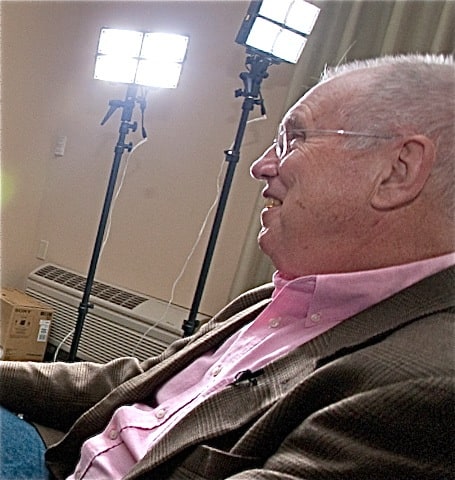Personal God or People?
Bernard Brandon Scott doesn’t need a personal God — he needs people…
“I get people who say, ‘Well, don’t you need a personal God?’ I don’t have a problem with God language; I have a problem with the reification of God language. God language is the way we talk about these ultimate values, for me. I don’t need a personal God. I DO need other people to relate to — and it’s that relationship with other people that is God. Now, that won’t pass the creedal test, but I’m not worried.”
Vocabulary note:
“Reification” = from Latin res “thing” + facere “to make.” Reification can be loosely translated as “thing-making;” the turning of something abstract into a concrete thing or object.
Also known as concretism (or the fallacy of misplaced concreteness), reification is a fallacy of ambiguity, when an abstraction (abstract belief or hypothetical construct) is treated as if it were a concrete, real event, or physical entity. In other words, it is the error of treating as a concrete thing something which is not concrete, but merely an idea. For example: if the phrase “fighting for justice” is taken literally, justice would be reified.
— adapted from Wikipedia
 Bernard Brandon Scott is Darbeth Distinguished Professor of New Testament at the Phillips Theological Seminary in Oklahoma. He is a charter member of The Jesus Seminar, co-chair of the Bible in Ancient and Modern Media Section of the Society of Biblical Literature, and a consultant to the American Bible Society experimental film translations. He is the author of a number of books, including Re-Imagine the World, Hear Then the Parable, and The Trouble with Resurrection.
Bernard Brandon Scott is Darbeth Distinguished Professor of New Testament at the Phillips Theological Seminary in Oklahoma. He is a charter member of The Jesus Seminar, co-chair of the Bible in Ancient and Modern Media Section of the Society of Biblical Literature, and a consultant to the American Bible Society experimental film translations. He is the author of a number of books, including Re-Imagine the World, Hear Then the Parable, and The Trouble with Resurrection.
